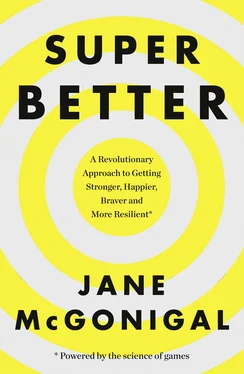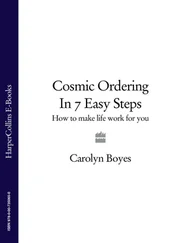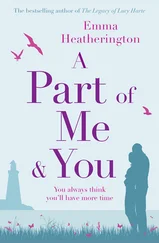I want you to look at games differently, too. I want you to discover the connection between the strengths you naturally express when you play games and the strengths you need to be happy, healthy, and successful in real life. To be more specific, I want you to see games as an opportunity to practice the seven life-changing skills that will make you a stronger person in every way: mentally, emotionally, physically, and socially.
You don’t have to be an avid game player to activate your gameful strengths in everyday life, but if you love or play any game regularly—golf, bridge, Scrabble, soccer, poker, Candy Crush Saga, solitaire, sudoku—you’re probably a bit more in touch with your gameful strengths already.
To lead a more gameful life, you simply have to be open to learning about the psychology of games—and be willing to experiment with new ways of thinking and acting that can help you increase your natural resilience.
The fastest way I know to get you to see games—and your own capabilities—differently is to play a game with you.
So let’s play a game together—right now.

I challenge you to complete four life-changing quests in the next five minutes.
Don’t worry, it’s easier than it sounds. I’ve watched some amazing people complete the same four quests you’re about to undertake—including Oprah Winfrey, legendary skateboarder and entrepreneur Tony Hawk, and Colonel Bat Masterson, the surgeon general for the U.S. Armed Forces. If they can do it, you can do it, too.
These are the first four quests that every SuperBetter player completes. I guarantee that if you successfully complete them all, roughly five minutes from now you will already be a stronger person—mentally, emotionally, physically, and socially. (You’ll also have a much better idea of how this book can help you unleash your gameful qualities.)
Ready to play? Let’s go!
THE GAME STARTS NOW
Here’s your first life-changing quest. I want you to complete it, right now, before you read any further.
Do not skip this first quest. I repeat: DO NOT SKIP THIS QUEST. If you skip it, you’ll be tempted to skip others—and then the game will be over before you’ve even started playing. So here we go. Your first quest—I know you can do it!

QUEST 1: Physical Resilience
Pick one:
Stand up and take three steps.
or
Make your hands into fists and hold them over your head as high as you can for five seconds.
Go!
Did you do it? Well done!
By completing this quest, you’ve just boosted your physical resilience.
Physical resilience is your body’s ability to withstand stress and heal itself. And research shows that the number-one thing people can do to boost their physical resilience is to not sit still. Whenever you sit still for more than a few minutes, your body starts to shut down at the metabolic level. This shutdown negatively impacts every aspect of your health, from your immune system to your ability to handle stress. 7
Every single second you’re not sitting still, however, you’re actively improving the health of your heart, your lungs, and your brain. 8You’ll have more energy and sleep better, too—which is crucial when you’re facing a hard challenge, even if it isn’t primarily physical in nature.
So stand up for just one second. Take three steps. Throw your arms in the air. That’s all it takes. You are now physically stronger than you were thirty seconds ago.
Ready for your next quest?

QUEST 2: Mental Resilience
Pick one:
Snap your fingers exactly fifty times
or
Count backward from 100 by 7, like this: 100, 93 . . . all the way to at least 0.
Go!
All done? Good work.
By completing this quest, you’ve just increased your mental resilience.
Mental resilience is motivation, focus, and willpower—strengths that are essential to achieving any goal.
Researchers have figured out that willpower is like a muscle. It gets stronger the more you exercise it—as long as you don’t exhaust it. 9Accomplishing tiny challenges—even ones as absurd as snapping your fingers exactly fifty times or counting backward by seven—helps you exercise this muscle without wearing it out. That means you’re more likely to have the motivation and determination you need when it’s time to tackle tougher obstacles. So congratulations: you are now mentally stronger than you were a minute ago.
Let’s keep playing!

QUEST 3: Emotional Resilience
Pick one:
If you’re inside, find a window and look outside for thirty seconds. If you’re outside, find a window and look in.
or
Do a Google Image or YouTube video search for “baby [your favorite animal].”
Go!
Mission accomplished? Great!
By completing this quest, you’ve just strengthened your emotional resilience.
Emotional resilience is the ability to access positive emotions at will. It doesn’t matter if you’re stressed, or bored, or angry, or in pain—when you have emotional resilience, you can choose to feel something good instead.
Emotional resilience is a particularly important strength. Research has shown that if, on average, people experience more positive emotions than negative ones, they gain a huge range of benefits. They’re more creative at solving problems. They’re more ambitious and successful at school and at work. They’re less likely to give up when things are hard. People around them are more likely to offer help and support them in their goals. 10
To achieve emotional resilience, you don’t need to eliminate negative emotions—that’s obviously impossible. You just need enough positive emotions, over the course of a day, to beat out the negative ones.
Both options in this quest are scientifically validated methods for provoking a specific positive emotion. Looking through a window provokes curiosity —the positive emotion that psychologists define as “a desire to gratify the mind with new information or objects of interest.” 11(Hopefully you saw something interesting through the window!) Meanwhile, researchers have demonstrated that looking at photos or videos of baby animals is all it takes to make virtually anyone feel the emotion of love . (Baby animal cuteness brings out our nurturing instinct!) Better yet, this quick burst of love from looking at baby animals doesn’t just feel good, it also improves attention and productivity. 12
Even if you felt the curiosity or the love for only a few seconds, you just got emotionally stronger. Enjoy it.
Let’s try one more quest.

QUEST 4: Social Resilience
Pick one:
Shake or hold someone’s hand for at least six seconds.
or
Send someone you know a quick thank-you by text, email, or Facebook message.
Читать дальше

















